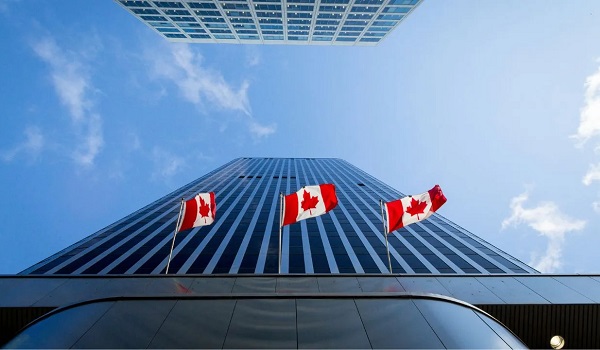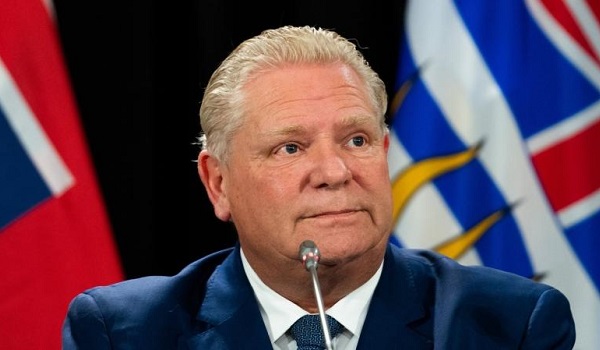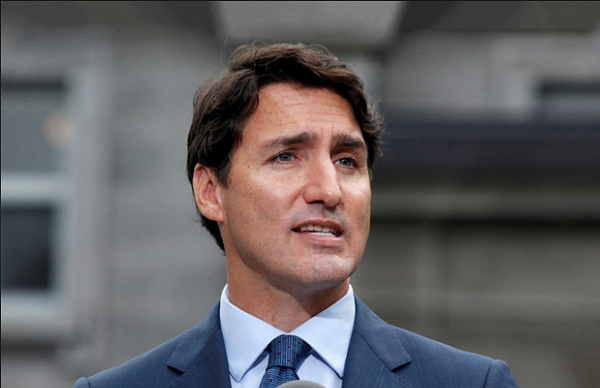U.S and Canada ties will go beyond Trump clashes and tariffs threats, outgoing U.S. ambassador says
U.S. president-elect Donald Trump’s promise to impose wide-ranging tariffs on imports from Canada poses a potentially existential threat to this country, the departing U.S. envoy to Ottawa is warning.
Mr. Trump has pledged a major change in American relations with Canada, beginning with the imposition of 25-per-cent tariffs aimed at both this country and Mexico, unless the two countries take action against what he calls an “invasion” of drugs and migrants entering the U.S.
Such tariffs “unquestionably would be devastating on Canada, on Canadian businesses and on the Canadian economy,” said David Cohen, U.S. ambassador to this country under President Joe Biden, in an editorial board meeting Tuesday with The Globe and Mail.
Mr. Trump’s threat has provoked alarm in Canada, prompting Prime Minister Justin Trudeau to make an extraordinary trip to the president-elect’s Mar-a-Lago resort for dinner last week.
But Mr. Cohen offered an optimistic outlook, pointing to the broad sweep and complexity of the ties between the U.S. and Canada, which he likened to members of a family that have historically resolved differences amicably.
On whether the re-election of Mr. Trump could blow that up, “my answer to that question is a definitive no,” Mr. Cohen said.
“The U.S.-Canada relationship is bigger than our leaders at any moment in time, beyond the president and the prime minister, beyond the White House, beyond the federal government, beyond other governments.”
Mr. Cohen came to Canada from Philadelphia, where he was a close adviser to Ed Rendell, the city’s mayor who went on to become Pennsylvania’s governor. He worked as a senior legal and telecommunications executive before moving to Ottawa.
Mr. Trump has nominated Pete Hoekstra, a former congressman from Michigan, to replace Mr. Cohen as ambassador to Canada. But Mr. Cohen promised that the Biden administration, in its final weeks in office, still hopes to advance a series of priorities with Canada, particularly in securing critical minerals, increasing defence spending and negotiating water use.
The U.S. wants to increase the number of Canadian companies receiving U.S. financial incentives designed to encourage North American rather than Chinese production and processing of critical minerals, Mr. Cohen said.
“The only way to effectively break the Chinese monopoly in the critical mineral space is to stand up and build a free-standing North American critical mineral supply chain,” he added.
He pledged U.S. assistance to Ottawa as it pours more money into the military, saying Mr. Trudeau’s government has said privately it hopes Canadian defence spending will reach its NATO commitment to 2 per cent of GDP ahead of a 2032 target.
There have been requests “for United States assistance in identifying shared defence spending priorities and accelerating the spend by Canada,” Mr. Cohen said.
The Biden administration also hopes to conclude renegotiation of a modernized Columbia River treaty, which has since 1961 governed both country’s joint use of a waterway critical for electrical generation, transportation, agriculture and salmon.
The two countries reached an agreement in principle earlier this year after years of negotiation on what Mr. Cohen called “one of the least talked about, but most significant legacies of what has been happening over the last few years between Canada and the United States.”
Concluding a finalized deal will require the consent of the U.S. Senate, and additional approvals in Canada that may include debate in Parliament. Achieving that before the Jan. 20 inauguration of Mr. Trump will require considerable political effort on both sides of the border.
Mr. Cohen called it “a realistic stretch goal.”
In other areas, meanwhile, the U.S. ambassador said the two countries must do a better job of confronting common threats, such as the illicit movement of guns, drugs and people across the border.
That includes a need for better information sharing and co-operation in the tracking and monitoring of illegal activities, he said.
“I don’t think we have to have exactly the same rules and exactly the same policies to be able to do a better job of working together in hardening the border,” he said.
The future of that border is uncertain, as Mr. Trump brings to office a new resolve to advance U.S. interests with friends and foes alike. Even inside the U.S. government, the likely effects of the president-elect’s plans remains unknown.
Mr. Cohen, for example, said he is aware of no analysis by the Department of Homeland Security or U.S. Immigration and Customs Enforcement on the likely scale of migrants seeking to flee to Canada if Mr. Trump makes good on promises of mass deportations.
Still, Mr. Cohen said, the president-elect is not alone in worrying about the rise of people trying to cross into the U.S. from Canada without proper authorization. That number has doubled in recent years, and the Biden administration at one point was worried it was on track to double yet again.
“We saw a surge in those numbers, and that was a concern as to vulnerability – and as to what that could potentially grow into,” Mr. Cohen said.
The two countries continue to discuss how to counter illegal border movements, he said, including Canadian concerns about the northward movement of guns.
“That is a very active conversation that is taking place today,” Mr. Cohen said. And, he added, it “will take place with this administration until the day it leaves office.”
This article was first reported by The Globe and Mail













